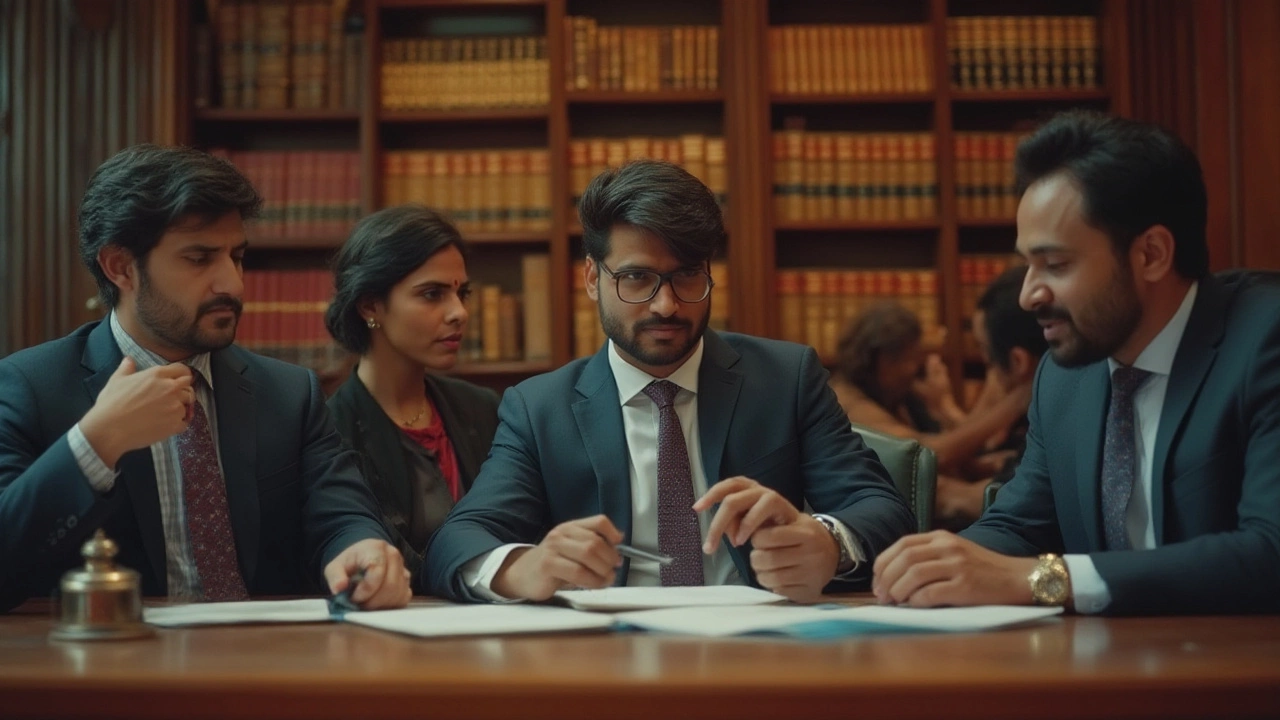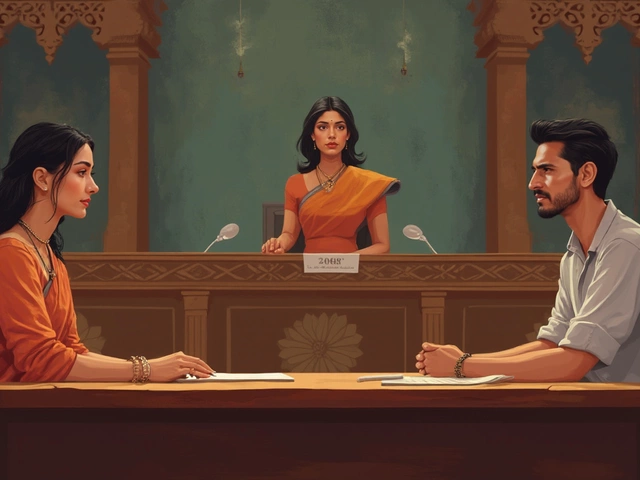Picture this: a seasoned trial lawyer standing in court, voice steady, words landing with the impact of a gavel. On the other side, an intimidating corporate attorney shaping the fate of billion-dollar deals. Law is not a one-size-fits-all profession. Some lawyers wield power like a broadsword, reshaping business landscapes or saving people from years behind bars. Others master subtler, relentless tactics that grind opponents down over years of complex litigation. But which kind of lawyer sits at the very top? Is there a single "strongest" lawyer, or does real legal power depend on the battle at hand?
Where Legal Power Comes From: More Than Just a Degree
There's no Hogwarts house for lawyers, but the path to power in the legal field sort of feels like magic school crossed with gladiator training. First, you have the obvious stuff: top law schools, sky-high grades, maybe a clerkship with a fancy judge. Prestige matters. But don't forget, the courtroom champion arguing a murder case doesn't need to know the ins and outs of corporate mergers, and that cutthroat deal-maker might never set foot in a criminal court. Specialization is everything.
Here's a real twist though: expertise isn’t just about memorizing the law; it’s about how a lawyer uses it. The strongest lawyers have street smarts and book smarts. They read people as well as they read legislation. Watching a skillful cross-examination in court is like seeing a chess grandmaster in action—one wrong move and the game could be lost. My daughter Leela once asked, “Why don’t lawyers just memorize all the laws and win?” If only it were that simple. Power comes from experience, raw talent, and stamina—sometimes, it’s the lawyer who just won’t quit that comes out on top.
Legal power also depends on resources. Some law firms basically have armies of junior lawyers, paralegals, and investigators. When you’re up against a team like that, it’s not just the lone warrior at the front that matters—it's the entire operation running behind the scenes. That’s why so many big cases, especially in corporate law, come down to which side has deeper pockets or more sophisticated tech.
If you want to spot a strong lawyer, don’t just look for fancy degrees. Listen to how they explain complicated things. Can they make you understand your rights without sounding like they're reading from a rulebook? That’s a big sign you’re in good hands. Strong lawyers are also good storytellers—they can make a jury feel a client’s pain, or convince a CEO to rethink a risky merger.
Practical tip: If you’re trying to gauge strength before hiring a lawyer, check their track record—but also ask about the biggest problem cases they've handled. The stories they tell, and the way they talk about defeats as well as wins, says a lot about their true strength.
The Titans: Trial Lawyers, Corporate Lawyers, and Beyond
Let's break down the types of lawyers who earn reputations as the strongest in their fields:
- Trial Lawyers (Litigators): Think of them as the ultimate gladiators of the legal world. These are folks who thrive under pressure. They're the star players in high-stakes criminal trials, massive class action lawsuits, and the kind of battles that end up in headlines. Johnnie Cochran from the O.J. Simpson trial, for example, became a household name for his compelling courtroom presence, razor-sharp strategy, and ability to sway juries. The best trial lawyers see patterns others miss, turn weaknesses into strengths, and never lose focus, even when the pressure's insane.
- Corporate Lawyers: Business runs on contracts, negotiations, and sometimes outright war with competitors. The strongest corporate attorneys aren't just legal experts—they're architects of mergers and acquisitions worth billions. They forecast risks, structure complicated deals, and often work insane hours, sometimes going days without real sleep (believe me, I have friends in M&A). Look at someone like Marty Lipton, who literally invented the 'poison pill' defense to protect companies from hostile takeovers. That’s legal jujitsu at its finest.
- Constitutional and Supreme Court Lawyers: Ever hear of someone changing the law of the land? Enter the legal heavyweights who argue in front of the highest courts. A lawyer like Ruth Bader Ginsburg (before becoming a judge herself) reshaped American law bit by bit through razor-focused arguments and deep research, paving the way for equality in ways regular court battles never could have achieved.
- Criminal Defense Lawyers: When your future depends on a single verdict, these are the people you want on your side. They strategize everything—jury selection, evidence suppression, impassioned closing arguments. Some, like Barry Scheck (of the Innocence Project), use DNA science to literally change lives.
Here's the secret: The "strongest" lawyer is the one who dominates at the table you need. If you're up against a billion-dollar corporation, you want a corporate shark. If you’re in a life-or-death criminal trial, you want a seasoned trial lawyer who knows every trick in the book.
Check out this table for a quick comparison of the main contenders, based on what makes them "strong."
| Type | Where They Shine | Key Strengths | High-Profile Example |
|---|---|---|---|
| Trial Lawyer (Litigator) | Courtroom battles; Jury persuasion | Strategy, storytelling, pressure handling | Johnnie Cochran |
| Corporate Lawyer | Business deals, mergers, big negotiations | Risk analysis, dealmaking, negotiation | Marty Lipton |
| Supreme Court/Constitutional Lawyer | Change-making cases, landmark decisions | Research, big-picture thinking, advocacy | Ruth Bader Ginsburg (pre-judiciary) |
| Criminal Defense Lawyer | Serious criminal cases, liberty on the line | Investigation, argument, client rapport | Barry Scheck |
And don’t forget the niche outliers: patent litigators, antitrust specialists, and divorce lawyers who combine ruthless tactics with bedside manner. Every specialty has its powerhouses—Aryan, my son, was fascinated to learn that IP lawyers helped tech giants fight over smartphone patents that changed how we use our phones.

Traits Shared by the Strongest Lawyers
What separates the top lawyers from the rest? It’s never just intelligence. In fact, you can be the smartest person in the room but still lose the fight if you don’t combine brains with grit, strategy, and nerves of steel. From the cases I’ve seen—and the ones you hear professionals whisper about at legal conferences—certain uncommon traits are almost always present in the strongest lawyers:
- Adaptability: Legal battles are unpredictable, like trying to manage breakfast with two small kids (one wants toast, the other wants eggs, neither wants peace). Great lawyers can flip their strategy mid-case, sometimes mid-sentence.
- Communication: Whether it’s convincing a skeptical judge or getting a witness to open up, powerful lawyers connect. They speak plainly to clients, using stories and analogies. (I tell Aryan sometimes lawyers are like translators, making the law speak human.)
- Resilience: Strong lawyers get tired, stressed, sometimes they even lose, but they learn, regroup, and return even harder. The star litigator you see today probably lost a tough case years earlier—and came back stronger.
- Research Obsession: Ever hear about lawyers pulling all-nighters, buried in paperwork? Not a myth. Legal eagles like the Supreme Court specialists don’t just know the law—they know the deep history, the footnotes, and the loopholes that can tilt a case.
- Team Leadership: Rarely does a powerhouse lawyer go it alone—strong leaders run tight teams and inspire hungry young lawyers to pull their own weight. They manage stress, delegate when needed, and treat people with respect. I’ve met a few; they make everyone around them better.
- Savvy Technology Use: In 2025, the strongest lawyers use AI for research, automate small stuff, and let new tech cut delays. But tech’s just a tool; power still comes from human judgment.
Cool fact: Right now, top law firms are recruiting not just straight-A students but also people with weirdly diverse backgrounds—engineers, coders, even stage actors—because real legal strength is creative problem-solving under stress. That’s something you can’t always teach at law school.
How To Tell If You’ve Found a Legal Powerhouse
You may not need a "strongest" lawyer on every street-corner question, but when things get serious—think custody fights, criminal charges, major business lawsuits—it’s worth knowing how to spot the real deal.
- Ask blunt questions: “What’s the toughest case you’ve taken? What would you do if X went wrong?” See if their answers sound realistic, not just boastful. Power comes with humility to admit mistakes and learn.
- Request references or case outcomes. Strong lawyers usually have former clients willing to vouch for them (unless confidentiality is an issue, which is actually a good sign).
- Notice how they treat their own team—behind every star lawyer is usually an army of over-caffeinated, loyal support staff. If they run a happy, tight ship, that’s a sign of real strength and confidence, not just swagger.
- If you’re seeking someone in a specialized field (cyber crime, family law, or tech IP), dig into what cases they’ve actually handled, not just the list of things on their website. Direct experience means more than any degree or fancy office.
- Last tip: Trust your instinct. If a lawyer promises you the sun and moon with zero doubts, run the other way. The strongest lawyers know the risks—they’ll talk openly about them, not just sugarcoat things.
Sometimes, the strongest lawyer is the one who tells you what you least want to hear—because protecting you means telling uncomfortable truths, not selling empty hope.
Want one more little-known fact? The American Bar Association did a survey a few years back: Three out of five people who rated their lawyer as "strongest" mentioned compassion and honesty right next to courtroom wins. It’s a reminder that strength in law, like in life, is about much more than flexing the shiniest resume.


